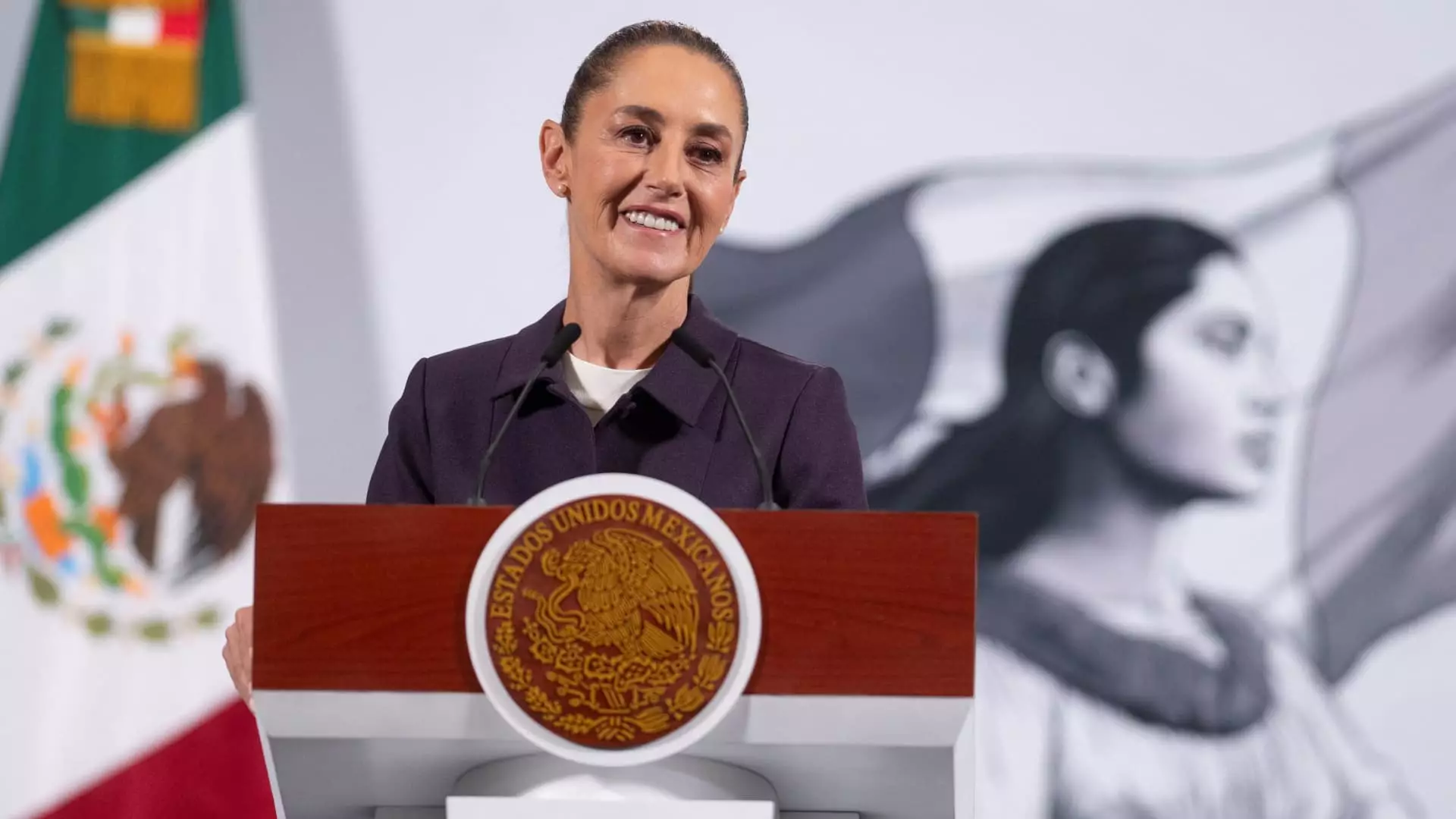The recent decision by President Donald Trump to temporarily halt the escalation of tariffs on Mexican goods reveals far more about the volatility and superficiality of U.S.-Mexico trade diplomacy than about a genuine resolution of underlying issues. While Trump claims success in ongoing negotiations, this apparent pause is a strategic gamble that highlights the fragile trust and systemic challenges inherent in complex international economic relationships. The ongoing use of tariffs as leverage masks deeper structural problems: the reliance on brinkmanship rather than collaborative problem-solving, and the misguided belief that economic coercion can substitute for genuine diplomatic consensus.
This approach risks trivializing the significance of sustainable, mutually beneficial trade agreements. The extension—rather than resolution—serves as a band-aid covering the wounds caused by years of unilateral tactics that ignore the needs and priorities of both sides. Tariffs, especially when wielded as political tools, distort markets and foster resentment; they do not address root causes like border security, organized crime, or fair labor practices. The assumption that a 90-day reprieve will lead to substantive dialogue downplays the complexity of these issues, suggesting a shortsighted view rooted in political posturing rather than strategic durability.
The Myth of Diplomatic Success and Its Illusions
Trump’s portrayal of the call with Mexican officials as “very successful” feels overly optimistic and arguably misleading. The fact that tariffs are merely frozen, not abolished, exposes the superficiality of the measured “progress.” It signifies less a real breakthrough and more a tactical pause amid stubbornly unresolved negotiations. Relying on vague promises—like Mexico “immediately” terminating unspecified trade barriers—underscores how inconsistent and opaque these negotiations remain. Full transparency would require clarity on what exactly is on the table, yet the administration’s silence betrays an underlying reluctance to confront genuine structural reform.
Moreover, the notion that these temporary arrangements are sustainable overlooks the risk of reinforcement of a transactional diplomatic mindset. The U.S. seems to treat its relationship with Mexico as a bargaining chip, showing little regard for long-term economic stability or deepened cooperation. Such a strategy fosters dependency on short-term concessions rather than fostering joint growth, which is detrimental to American and Mexican workers alike. The complex realities of cross-border supply chains, labor standards, and environmental considerations demand a more honest, systematic engagement—not a game of tariff chess.
The Power Dynamics and Their Implications
While Trump claims that Mexico has “agreed” to remove trade barriers, this phrasing obfuscates the power imbalance inherent in these negotiations. The U.S., wielding significant economic leverage, sets the tone with threats of punitive tariffs, often forcing Mexico into concessions that may not align with their broader economic interests. Simultaneously, Mexico’s tentative cooperation reflects a strategic balancing act—trying to preserve vital trade relationships while resisting overreach that could harm domestic industries or erode sovereignty.
The political calculus behind extending tariffs for another 90 days also highlights superficial diplomacy rooted in showmanship rather than genuine partnership. Engaging top officials from different sectors signals an attempt to project strength, but it also underscores how little meaningful progress has been achieved. These tactics risk widening gaps, fostering anti-American sentiment, and destabilizing regional economic stability. It is preferable—however challenging—to pursue negotiations grounded in mutual respect and shared economic goals rather than in manipulative threats and tactical pauses.
The Broader Cultural and Economic Consequences
The reliance on tariffs feeds into a narrative of economic nationalism that, while appealing to certain political factions, ultimately undermines the diversification and resilience critical to both nations’ futures. Instead of viewing Mexico as a partner, policy makers treat it as an adversary to be coerced into submission. This approach neglects the rich interdependence that characterizes U.S.-Mexico relations—an interdependence that, if properly cultivated, can serve as a model for cooperative regional development.
Furthermore, the temporary extension of tariffs obscures the long-term consequences of trade friction: increased consumer costs, disrupted supply chains, and suppressed economic growth. Employing tariffs as leverage risks cascading into wider protectionist tendencies and eroding the very global trade frameworks that have historically underpinned prosperity. For the center-left liberals committed to fair and equitable international relations, this strategy reveals a disturbing tendency toward short-term nationalism at the expense of genuine international cooperation.
The Trump administration’s latest move, cloaked in the language of diplomacy, ultimately exposes the superficiality and risk of a confrontational approach built on brinkmanship. True progress requires honest dialogue, respect for sovereignty, and a recognition that sustainable economic relationships are the foundation of regional stability—not transient tariff threats.


Leave a Reply